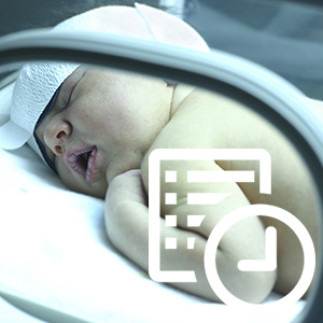Conférence scientifique | Centre de recherche du CHU Sainte-Justine
Conférence de Marc-Philip Hitz, MD, PhD (invité pour l'axe Pathologies fœtomaternelles et néonatales). Responsable du groupe en génétique cardiovasculaire, spécialiste en génétique clinique et en pédiatrie, Département des cardiopathies congénitales et cardiologie pédiatrique, Hôpital universitaire de Schleswig-Holstein, Allemagne
Résumé :
Congenital Heart Defects (CHD) are one of the most common birth defects. Several genes have been identified to cause monogenic forms of CHD in humans and mice. Nevertheless, the small absolute sibling recurrence risk (~2.7%) suggests a burden of de novo mutations, and/or incomplete penetrance for many of the observed cases. Recent studies have highlighted the role of de novo protein-truncating variants (PTVs) among ‘syndromic’ patients with a distinct facial appearance and extra-cardiac manifestations. Exome sequencing of 1,891 probands (1,365 trios, 68 probands from 32 multi-sibling families and 458 singletons) highlighted the genetic architecture among syndromic and non-syndromic cases. This study included 610 syndromic (S-CHD) and 1,281 non-syndromic cases (NS-CHD). Patient assignment to both groups was taking into account a distinct facial appearance, and a presentation of at least one reported extra-cardiac malformation for S-CHD cases. Consistent with recent findings a significant enrichment of de novo PTVs in known CHD-associated genes among the S-CHD cases was identified. In addition, it was highlighted that NS-CHD cases show a significant enrichment of PTVs inherited from unaffected parents in known CHD genes. Furthermore, we were able to link three genome-wide significant genes CHD4, CDK13 and PRKD1 to a novel S-CHD disorder caused by DNMs.

